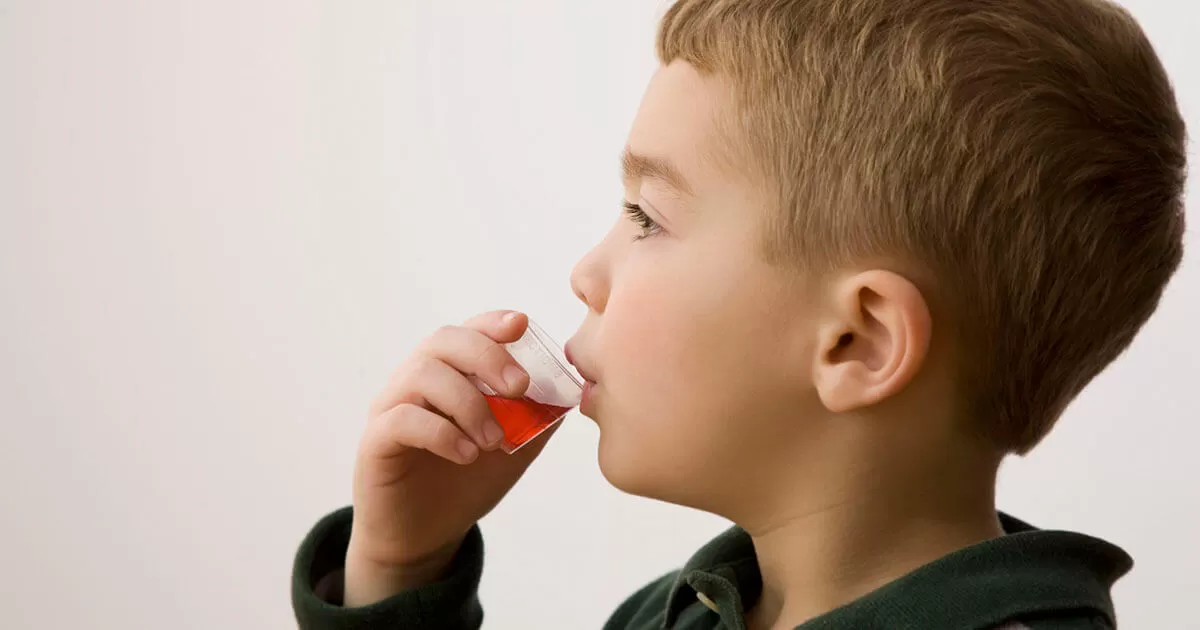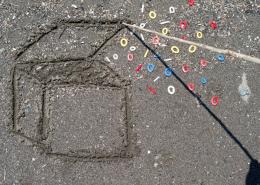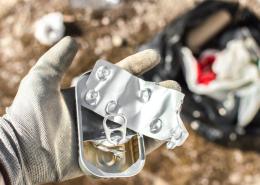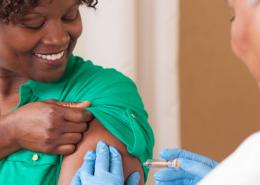Pediatric Dosing—Giving Your Child a Safe Dose of Medicine

When your child gets a cough or runny nose, do you pick up a bottle of medicine at the pharmacy and give them a dose with a kitchen spoon? Don’t. Giving medicine with that old kitchen spoon may mean that your child may be receiving a larger or smaller dose than directed.
In fact, the Department of Health and Human Services asks that you ditch the kitchen spoon and use the dosing device that comes with the over-the-counter (OTC) medication because the dosing spoon or cup that comes with the medicine has been calibrated specifically for that medicine.
Give a Safe Dose Every Time
While underdosing means your child may not be getting the benefit of adequate treatment, overdosing can be very dangerous. Each year, more than 70,000 children visit emergency departments in the U.S. due to unintentional medication overdoses. Two common and preventable medication errors are giving the wrong dose and using an incorrect dosing device. The FDA began to require easier to follow directions and easy-to-use, measuring devices be packaged with over-the-counter oral liquid medicines starting in 2011.
There are several safety tips that can help you to be more certain about the dose of medicine you are giving to your child:
- Read the label every time. Medicine safety starts when you read the label every time you give medicine to your child. Be sure to check the expiration date
- Coordinate with all the caregivers. If you give a dose of medicine to your child in the morning, the babysitter gives a dose during the day, and your spouse gives a dose at night, there are opportunities for dosing errors. Make sure that each caregiver who provides medication, writes down the medication that was given, the dose, and the time that it was given
- Watch out for medication overlap. Many OTC medicines contain the same ingredients. When you are giving more than one medication to your child at a time, be sure to read the ingredients and make sure that you are not giving your child too much of one ingredient
- Do not double-dose. If symptoms aren’t getting better with the medication, do not add on doses or give higher amounts of medication. Remember: more is not necessarily better. Instead, speak to your doctor or pharmacist right away
- Always use the dosing device that comes with the medicine to prevent dosing errors. If there isn’t one, ask your pharmacist for guidance
Keep Medicine “Up and Away” from Children
Another important form of medication safety includes keeping medications out of the reach of children. This means:
- Never leaving medicine at a sick child’s bedside or a bathroom counter that is within his or her reach, even if you have to give it again in a few hours
- Always relocking the bottle and storing it out of reach
- Treating vitamins the same way you would treat your children’s medicine, since both can be potentially harmful to young children at certain doses
- Don’t pretend that medicines or vitamins are candy
- Talking to children about medication safety
- Teaching young children that taking medicine without adult supervision can be dangerous
- Keeping the Poison Control number handy. Put the Poison Control number in your smart phone or on the refrigerator, just in case you need it. The number is: (800) 222-1222
- Reminding family, friends and houseguests to be sure to keep their own medicine away from children and out of reach. This includes babysitters and visitors, who may have purses, bags, or coats with medicines in them.
When in Doubt, Speak to a Professional
Be sure to ask the pediatrician or pharmacist about giving the correct dose of medicine for your child. If for any reason, you think you may have a situation in which your child has gotten too much medication, always call Poison Control at (800) 222-1222. Even if you’re not sure, experts are standing by 24 hours a day, 7 days a week and are always willing to talk you through a question, issue, or problem.
Michael Zielinski, PharmD, RPh, is a Senior Manager in Global Medical Affairs at Pfizer.
Paul Butkerait, BS Pharm, PhD, is the Associate Director in Medical Affairs in Pain & Respiratory Consumer Healthcare at Pfizer.
References
- 1. Committee on Drugs. Metric units and the preferred dosing of orally administered liquid medications. Pediatrics.
- 2. Food and Drug Administration. Medicines in my home. Accessed: October 20, 2015.
- 3. Schillie SF, Shehab N, Thomas KE, Budnitz DS. Medication overdoses leading to emergency department visits among children. Am J Prev Med.
- 4. Center for Drug Evaluation and Research (CDER). Guidance for industry: Dosage delivery devices for orally ingested OTC liquid drug products. Accessed: October 20, 2015.
- 5. FDA Consumer Health Information. Ten tips to prevent an accidental overdose. Accessed: October 20, 2015.
- 6. Up and Away. Up and away medication safety tip sheet. Accessed: October 20, 2015.





